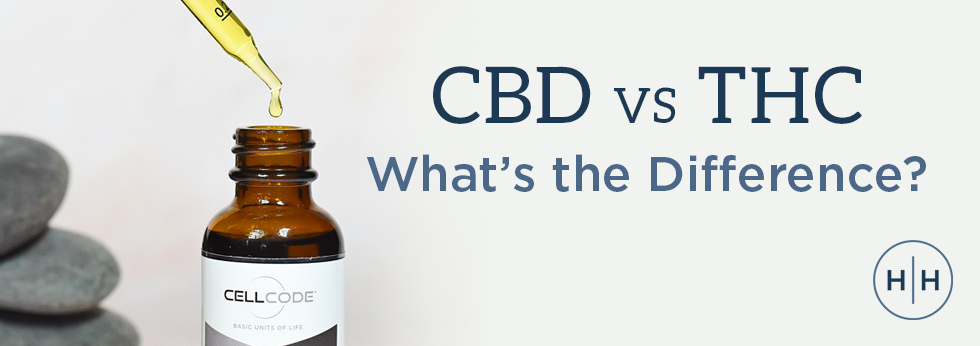With CBD now legalized and more states legalizing the use of marijuana, there is confusion about the differences between cannabidiol (CBD) and delta-9-tetrahydrocannabinol (THC). They are both cannabinoids, however our bodies are affected by them in very different ways.
To help understand the differences, it is important to know that our bodies have an endocannabinoid system. There are two main endocannabinoid receptors, CB1 and CB2. CB1 receptors are mostly found in the central nervous system. CB2 receptors are mostly found in the peripheral nervous system, especially immune cells. The endocannabinoid system helps us in regulating a multitude of different body functions.
THC activates the CB1 receptors in our bodies and those receptors are what cause people to feel intoxicated or high. The degree of intoxication will vary from person to person. Studies have shown that the prefrontal cortex has increased blood flow while using THC. This area of the brain regulates decision making and attention. Which is probably why eating an entire pizza seemed like a good idea after using THC!
CBD on the other hand has hardly any effect on CB1 receptors. While CBD can be classified as psychoactive (because it does affect our brains and bodies) it is not intoxicating like THC is. In fact, when CBD is used with THC it can often create a more subtle intoxication and can often hinder the unpleasant feeling of paranoia that some THC strains have. Using high doses of CBD can create an extremely relaxing experience, yet you will still have a clear mind. This is why many people who suffer from anxiety use CBD.
It is important to note that as legal use of CBD and THC continues to increase, so does our knowledge of the affects it has on our bodies. Although CBD was discovered and studied and the 1940’s, it was only in the 1990’s that the endocannabinoid system was discovered, and even more recently that the connection between the two was discovered. If you have any questions about CBD you can call our office and speak to one of our pharmacists: 253-525-1362.

